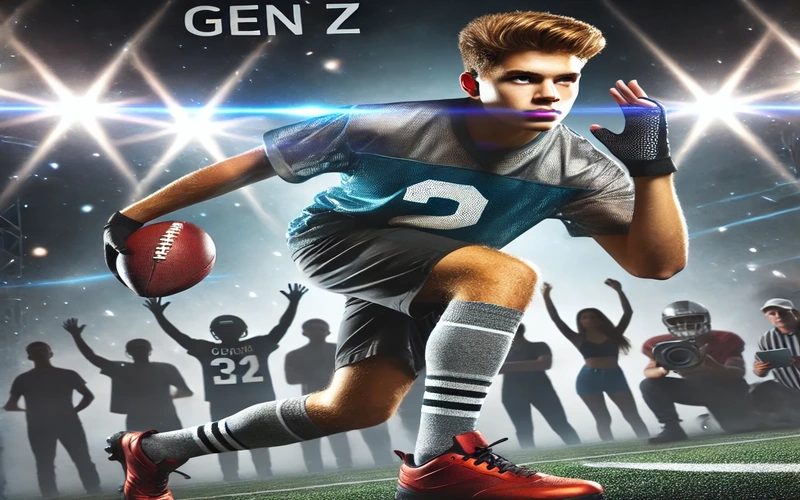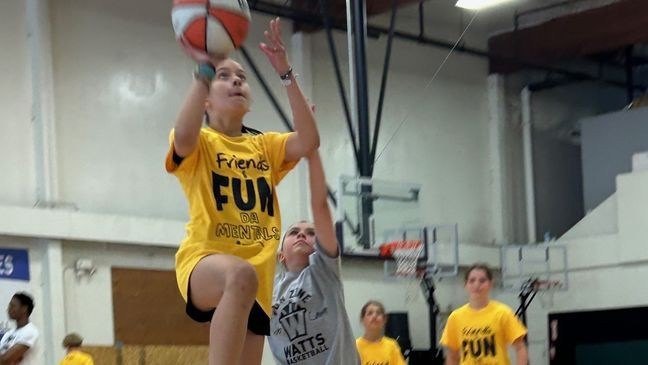Generation Z—those born from roughly 1997 to 2012—are now in their athletic prime. As of 2025, the oldest Gen Zers are around 28 years old: elite age for athletes across disciplines. What sets this generation apart isn’t just performance—they are reshaping how sports are trained, experienced, and monetized. From hyper-personalized training to social-first branding, Gen Z athletes are revolutionizing the game.
1. Digital Natives: Redrawing the Athlete Identity
Growing up with smartphones, high-speed internet, and social platforms gave Gen Z athletes native fluency in digital self-expression. They are not merely competitors—they’re content creators, wellness advocates, and social activists. This shift is illustrated by:
- Student-athletes securing endorsements early: High school phenom Ethan Holliday inked a deal with Adidas at age 17 via NIL frameworks, earning $500–$2,000 per post—and superstars top six figures
- Personal brand building: A survey showed 82% of Gen Z athletes maintain personal websites or blogs, 4× more social engagement per post than legacy stars, and collectively earned $1.1 billion in endorsements last year
Their authenticity appeals to their peers: “They don’t just play for medals. They play for meaning.”
2. Customized Training: Tech-Powered Precision
Gen Z athletes prioritize holistic and data-driven training tailored to their bodies and minds. AI, wearables, and analytics have transformed preparation:
- AI-enhanced coaching: Motion captures analyze biomechanics in real time; smart shoes predict injury risks; apps track nutrition and hydration millisecond-by-millisecond
- Mental wellness tools: Athletes use neuro-feedback, gamified meditation, and audio for confidence building.
- Recovery innovations: Cryotherapy, infrared saunas, sleep pods integrated with biofeedback systems are mainstream.
These customized protocols reduce injury incidence and elevate performance consistently.
3. Socially Conscious & Community-Driven
Gen Z athletes aim to create impact beyond the field. Social justice, mental health, sustainability—these values shape their public personas and partnerships:
- Athletic activism: Stars like US tennis star Coco Gauff remind us they’re driven by equity. A recent FT profile described them as “digital natives… socially conscious… bridge-building”
- Philanthropic engagement: Gen Z public figures actively engage in social causes—promoting environmental sustainability and mental-health awareness, inspired by celebrity norms .
Their authenticity wins fans—not only for athleticism but shared ideals.
4. Social Media & New Sponsorship Pathways
Gen Z athletes are rewriting brand partnerships:
- Authentic brand deals: Brands now seek athletes with genuine stories. Sponsorship is no longer transactional but collaborative and value-aligned
- Athlete influencer leap: With ~5.6% engagement on athlete-driven content vs ~2.4% for traditional influencers, they outperform brand influencers
- Early career deals: Even high schoolers sign NIL deals—major brands like Nike and Jordan have partnered directly with teenage athletes
They’re marketing partners, not just endorsers.
5. Diversifying Sports & Athlete Reach
Gen Z’s sports tastes are eclectic—mixing traditional and novel formats:
- Running boom: Marathons are seeing record participation from 20–24 year olds, especially Gen Z women—growing from 5% to 8% of finishers since 2021 Clubs and social media run crews drive growth.
- Digital-first sports: Youth identify more with non-traditional sports—esports, trick shot creators, obstacle courses—than major leagues
- Top Gen Z sports: Football (soccer), running, F1, swimming, boxing, tennis, rugby, and even chess are highly popular among Gen Z audiences
Athletes embrace this diversity—blurring lines between physical and digital competition.
6. Media Evolution: Short-Form, Behind-the-Scenes Access
Gen Z craves raw, story-rich content:
- Docu-series formats: UFC’s “Embedded” and NFL’s “Hard Knocks” show intimate athlete prep, movement, and mindset
- Social content: Platforms like TikTok, Instagram, Twitch deliver bite-sized yet powerful sports moments. Authenticity matters more than polish .
- Emerging sport content: Trick shots and parkour go viral daily—traditional sports leagues must adapt or risk irrelevance
Athletes themselves produce behind-the-scenes footage, training clips, interviews—deepening fan connection.
7. Training & Scouting Innovation
Coaches and federations are evolving to match Gen Z’s growth:
- Tech-powered scouting: Digital platforms identify talent from remote regions—India’s cricket scene included motion-capture training for young javelin throwers
- Holistic support staff: Sports organizations now employ performance psychologists, digital content teams, and brand advisors alongside coaches.
- Hybrid spaces: Stadiums integrate training facilities, recovery centers, content studios, and fan-engagement zones in one complex.
Sports institutions are evolving to foster Gen Z’s athletic identity and marketplace value.
8. Longevity Through Science & Wellness
Gen Z rejects overtraining culture:
- Evidence-based recovery: They adopt data-informed rest over rigid overtraining. Reddit discussions confirm longer athlete careers at healthier weights
- Biohacking lifestyle: Recovery is science-first—nutrition, sleep, stress access are tracked and optimized.
- Mental wellness: Seeking therapy and burnout prevention is normalized in Gen Z sports culture.
This approach ensures longer, more sustainable athletic careers.
9. Gen Z Athletes as Economic Drivers
Their commercial impact is reshaping sports business:
- Gel deal market: NIL deals worth $338 m in 40 states; top high school stars earn big money even before college
- Social ROI: Athlete influencers yield up to 7× ad spend compared to traditional digital influencers
- Sports economy expansion: Non-mainstream sports marketing is up—football, Olympics, e-sports endorsement revenue up 46% in India; Indian sports economy nears $2 billion
Gen Z athletes are reshaping sports finance across levels.
10. What’s Next: A Gen Z Sports Future
Looking ahead into 2026 and beyond:
- VR sports communities: Fans and athletes will connect through virtual stadiums and avatar-run events via the metaverse
- Global digital leagues: E-sports and virtual sports ecosystems will continue expanding.
- AI recruitment: Algorithms will spot talent through social posts and highlight reels.
- Athlete unions & advocacy: Gen Z demands fair contracts, LGBT+ rights, wellness support; unions form earlier.
- Athlete creators: Many will split roles as sports competitors, influencers, entrepreneurs seamlessly .
Their game is not just on the field—it’s online, cultural, financial.
✅ Final Takeaway
In 2025, Gen Z athletes are not only excelling—they’re redefining what it means to be elite:
- Training smarter and longer through tech and wellness.
- Building personal brands through authenticity and advocacy.
- Redefining what “sport” means, blurring physical and virtual, competitive and community.
- Driving economic growth via sponsorships, digital influence, and fan engagement.
No longer just players, these athletes are content creators, social activists, wellness pioneers, integrated into an athlete–brand ecosystem they’ve helped craft. The spotlight on their values, voices, and tech-savvy strategies signals a new era of sport—where Gen Z’s influence reshapes the future of athletics.




